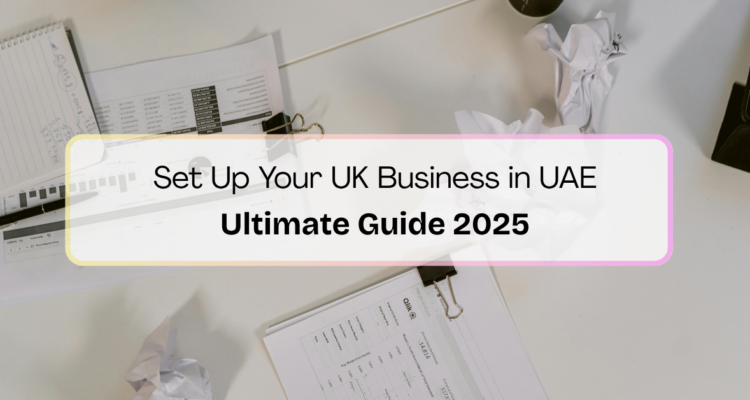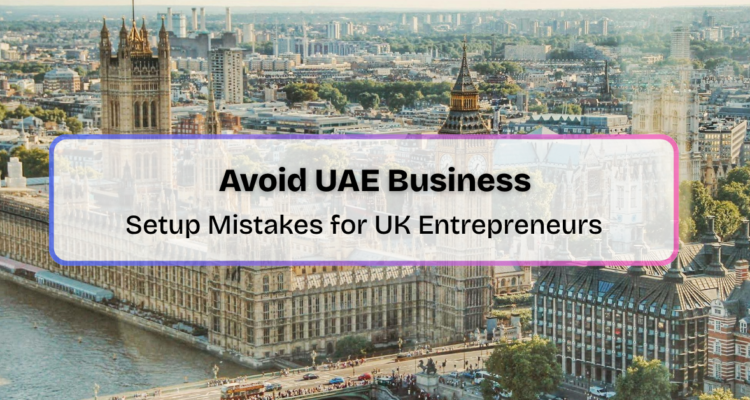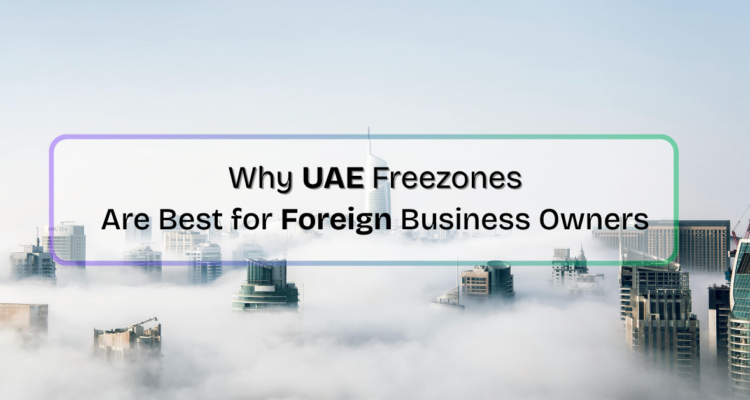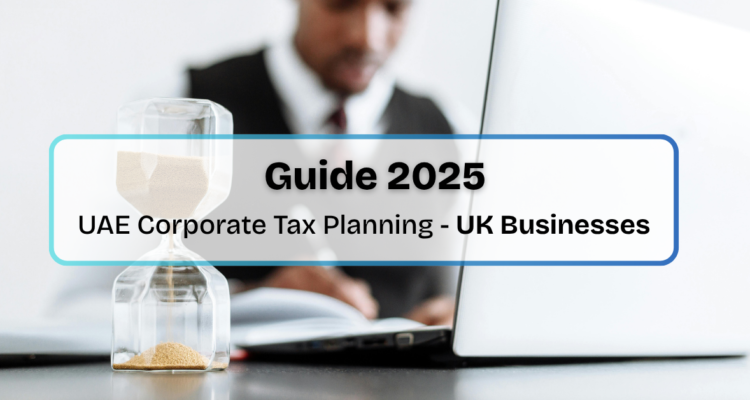The United Arab Emirates (UAE) is an attractive destination for UK entrepreneurs, offering a strategic…

The Ultimate Guide to Setting Up Your UK Business in the UAE: Key Steps and Considerations
The United Arab Emirates (UAE) is a premier destination for U K businesses seeking global expansion, offering a strategic location, robust economy, and business-friendly policies.
With its tax advantages, modern infrastructure, and access to markets across the Middle East, Africa, and Asia, the UAE presents unparalleled opportunities.
However, setting up a business in the UAE requires navigating regulatory, cultural, and financial considerations.
At Global Business Konsultancy, we specialize in guiding UK entrepreneurs through this process seamlessly.
Why Expand Your UK Business to the UAE?
The UAE offers compelling advantages for UK businesses:
- Strategic Location: A gateway to global markets, connecting Europe, Asia, and Africa.
- Tax Benefits: 0% personal income tax, 9% corporate tax (with exemptions in free zones), and 5% VAT.
- Economic Stability: A diversified economy with thriving sectors like trade, technology, finance, and tourism.
- Business-Friendly Policies: 100% foreign ownership in most sectors since the 2021 law update, streamlined licensing, and investor incentives.
Whether you’re in retail, tech, or professional services, the UAE provides a dynamic platform for growth.
Key Steps to Setting Up Your UK Business in the UAE
Step 1: Choose the Right Business Structure
Selecting the appropriate business setup is critical:
- Mainland Company: Operate anywhere in the UAE with full ownership in most sectors. Ideal for businesses targeting the local market.
- Free Zone Company: Benefit from 100% ownership, 0% corporate tax on qualifying income, and simplified setup in one of the UAE’s 40+ free zones (e.g., Dubai Multi Commodities Centre, Abu Dhabi Global Market).
- Offshore Company: Suitable for international trading or asset holding without a physical UAE presence.
Consideration: Free zones are sector-specific (e.g., Dubai Internet City for tech, Jebel Ali Free Zone for logistics). Choose one aligned with your business activities.
Step 2: Define Business Activities and Obtain Approvals
Identify your business activities (e.g., trading, consulting, manufacturing) and secure initial approvals:
- Mainland: Apply to the Department of Economic Development (DED) in the chosen emirate (e.g., Dubai DED, Abu Dhabi DED).
- Free Zone: Submit applications to the respective free zone authority.
- Offshore: Work with a registered agent for incorporation.
Required Documents:
- UK Certificate of Incorporation.
- Business plan outlining activities and objectives.
- Passport copies of shareholders and directors.
- Proof of address and UK business legitimacy.
Step 3: Select a Business Name
Choose a name compliant with UAE regulations:
- Avoid offensive or religious terms.
- Reflect your business activity (e.g., “Tech Solutions” for a tech firm).
- Verify availability with the DED or free zone authority.
Step 4: Obtain a Business License
Select the appropriate license based on your activities:
- Commercial License: For trading or retail.
- Professional License: For service-based businesses (e.g., consulting, IT).
- Industrial License: For manufacturing or industrial operations.
Submit applications to the DED (mainland) or free zone authority, along with fees and documents. Additional approvals may be required for regulated sectors like healthcare or food and beverage.
Step 5: Register with the Chamber of Commerce
For mainland businesses, join the local Chamber of Commerce (e.g., Dubai Chamber) to enhance credibility and access networking opportunities.
Step 6: Open a Corporate Bank Account
Open a UAE corporate bank account to manage finances. Popular banks include Emirates NBD, HSBC, and Standard Chartered. Requirements include:
- UAE business license.
- Memorandum of Association (MOA).
- UK business registration documents.
- Passport copies of shareholders.
Some banks require a minimum balance or charge setup fees. Global Business Konsultancy can facilitate introductions to expedite the process.
Step 7: Secure Visas and Permits
Obtain residency visas for yourself, employees, and dependents:
- Investor Visa: For business owners, with investment thresholds varying by emirate or free zone.
- Employment Visa: For staff, based on license quotas.
- Dependent Visa: For family members of visa holders.
Additional permits may be required for specific industries. Partner with Global Business Konsultancy to streamline visa applications.
Step 8: Lease Office Space
Choose a location based on your setup:
- Mainland: Lease office or retail space in business hubs like Dubai’s Business Bay or Abu Dhabi’s Al Maryah Island.
- Free Zone: Use shared facilities or dedicated spaces within the free zone.
- Offshore: No physical office required.
Step 9: Navigate Taxation
Understand the UAE’s tax system to ensure compliance:
- Corporate Tax (CT): 9% on taxable income above AED 375,000 (effective June 2023). Free zone businesses may qualify for 0% CT on qualifying income (e.g., exports, intra-free zone trading).
- Value Added Tax (VAT): 5% on taxable supplies, mandatory for businesses with revenue above AED 375,000.
- UK-UAE Tax Treaty: Leverage the double taxation agreement to claim tax credits for UAE taxes paid, reducing UK tax liability. File HMRC forms as needed.
Register for CT and VAT via the Federal Tax Authority’s EmaraTax portal. Maintain audited records for 7 years, adhering to IFRS standards.
Step 10: Ensure Ongoing Compliance
Comply with annual requirements:
- License renewals (DED or free zone).
- Financial audits (mandatory for mainland and some free zones).
- VAT and CT filings within specified deadlines.
Global Business Konsultancy offers PRO services to manage renewals and compliance efficiently.
Key Considerations for the UK Business Owners
Cultural Nuances
- Business Etiquette: Build trust through personal relationships, respect local customs (e.g., modest attire, avoiding business during Ramadan), and use greetings like “As-salamu Alaikum.”
- Networking: Attend events hosted by the Dubai Chamber or UK-UAE Business Council to connect with local stakeholders.
Market Research
- Consumer Preferences: Tailor your offerings to UAE’s diverse, multicultural market. For example, tech and luxury goods are in high demand.
- Competition: Analyze competitors in your sector to differentiate your brand.
Financial Planning
- Cost Management: Factor in setup costs (e.g., licensing, office lease, visas) and ongoing expenses (e.g., renewals, audits).
- Currency Exchange: Monitor GBP-AED exchange rates for efficient fund transfers between the UK and UAE.
Legal Compliance
- UAE Laws: Stay updated on labor, commercial, and data protection regulations.
- UK Obligations: Report UAE income to HMRC, ensuring compliance with UK tax laws and the double taxation treaty.
Why Choose Global Business Konsultancy for Your UAE Business Setup?
At Global Business Konsultancy, we provide tailored support for UK businesses:
- End-to-End Guidance: From structure selection to licensing, visas, and banking.
- Tax Expertise: Navigate corporate tax, VAT, and UK-UAE tax treaty benefits.
- Cultural and Compliance Support: Bridge cultural gaps and ensure regulatory adherence.
Our expertise ensures a seamless setup, allowing you to focus on growth.
Conclusion
Setting up your UK business in the UAE is a strategic move to access a vibrant, global market. By following these steps and addressing key considerations, you can establish a compliant, successful presence.
Partner with Global Business Konsultancy to overcome challenges and unlock the UAE’s full potential for your business.
Ready to expand your UK business to the UAE? Contact Global Business Konsultancy for expert support tailored to your needs.




